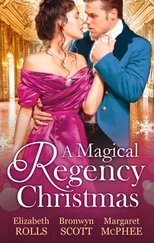The way I have landed there are long blades of grass tickling my lips. When I nibble on them, they have a green and sour taste. All around me, expiring actors are crying out for their mamas, for God to spare them. “O God O God O God,” says a voice from ahead of me. I wish they would shut up. I always thought if I died for real, I would die quietly, because pending oblivion would surely snatch away my voice. Sometimes the thought of death makes me silent even as I pass through an ordinary living day. The wind shifts and carries a burning whiff of naphthalene to my nose — some reenactor has been storing his uniform in mothballs. “Ain’t I too young to go? Ain’t I too young? Who will look after my Frieda?” The boys cry out for their Friedas, their Birgits, their sweet little Maueschens. We are supposed to be an all-German regiment.
“Hey, dead man,” says a voice just behind me, after the cries of the wounded have quieted to moans. Someone’s fallen there: I can feel a foot resting against my thigh. “You got a view? What’s happening?” He sounds like a little boy.
“Much shooting,” I say. He kicks me square in the ass.
“Farb!” I say accusingly. I want to clutch my ass, but the dead don’t rub their hurts.
“It’s a contraction of the thigh muscles,” he says. “Authentic. It went on. I got documentation. Some boys flailed like puppets as they went. So tell me what’s happening, or I’ll do it again.”
“Son of a bitch!” I say, because I’m not accustomed to being kicked by boys from my own side. “Shit-house adjutant!” He kicks me again, hard, and I tell him what’s happening. The Ninth (that’s us) is making steady progress across the field. The Fifty-fifth Ohio is with them, but where the rest of the brigade has got to, I have no idea. There’s Colonel Kammerling bouncing stoutly across the field on his Appaloosa. He is the sort of brave or foolish colonel who carries his own messages into battle. Goddamn he’s been hit! Just as he pulled up beside the captain some dirty Reb has plucked him off.
That last bit is untrue. The colonel is entirely well. Little Billy Kicking Boots can see this when he sits up with a curse. “Farb!” he says. “Kammerling didn’t die at Chickamauga!” I can already tell he’s the sort of stickler for historical accuracy that can be the bane of improvisation, if not fun. I turn my head to look at him, trying to be ready when he kicks me again, and see that he is not a boy after all, but a boyish-looking girl. She has tried hard to make herself mannish, but her face is pretty and gives her away. I think immediately of Joan of Arc, who was surely cursed with all sorts of medieval defects, smelliness and hairiness and bad teeth. The other dead and wounded are calling for her to lie down, and she does.
“I’ll fix you,” she tells me, but doesn’t kick me again. She has positioned herself so she can see the battle; I am positioned so I can see only her face. A good sport, she calls out soft updates to me. I don’t need them. Chickamauga was dinner-table talk at my house when I was growing up. My father would shape peas and carrots into infantry lines to illustrate the battle. “So here,” he’d say, taking away a piece of carrot and eating it, “you can see how Rosecrans left a gaping hole in his line, and Longstreet was not the sort of fellow to ignore such an opportunity.” And Rebel peas went rolling through the gap. A lifetime of dinners like that puts history in your head. I know Chickamauga backward and forward, and since these reenactors pride themselves on absolute fidelity, I know just what will happen on this first day of battle. I have died repulsing Cleburne’s near-duck attack on the Union left. It was not a spectacular battle, not a Pickett’s Charge or a Thomas’s Stand, though we are in fact going to do Snodgrass Hill tomorrow. That will be the big blowout of the whole weekend.
When the battle is over, a lone bugler rides through the smoke. He pulls up amid the wounded, dying, and the dead to play taps. The dead rise, fat hairy boys who, when they are not fighting to preserve or destroy the Union, are lawyers or mechanics or the owners of pool-cleaning services. They rise, stretch limbs made stiff by death, give each other pats and hugs and ass slaps. “That was damn fine!” My brothers and my father come back to catch me up in the traditional post-battle group hug. We raise our father up on our shoulders and bounce him like a child. I find myself looking back to Joan of Arc, who ignores the men squeezing her shoulder and thumping her back. She is staring hatefully toward the enemy line. The Rebs are sauntering over from their line through the low-hanging smoke and the red sunset light, their hands stuck out before them for shaking.
My great-great-grandfather was a hero of Chickamauga. He gave his life to save a hapless drummer boy. Like him, I am a soldier in the Ninth Ohio, though I am not one of those people who think that antecedents make you a blue-blood reenactor. I have no patience with the Sons of Confederate Veterans or Grand Army of the Republic snobs. At dances the only medal I wear is my Boy Scouts Civil War Hiking Trail medal, which I earned with my own two feet.
Rebel-hating, not medals, was handed down in my family, but I’m not fanatical. The disdain was heavily diluted by the time it reached me. My great-great-grandfather ended every letter he ever wrote with “Jeff Davis drives the goat,” but my father moved from Ohio to Florida. He set up a dermatology practice in Orlando. At family reunions in Ohio, I was the Rebel cousin. “You’re from the South now!” said my cousin Libby, pushing away my hand when I tried to feel her up during a basement make-out session. The fact was, Orlando was not the South. And the South that my cousin, in the family tradition, was brought up to hate, was not anywhere anymore.
I don’t like to be at these things. I don’t like pretending. I don’t like guns, or the noise they make. I don’t like wool — it itches, and when I get rained on I smell like a dog. My boots fit poorly. But if I did not come out to play like this, I would risk a dishonorable discharge from my own family. It’s their passion, my two older brothers’, and my father’s and my mother’s. Clay, my little brother, hated it. We could complain to each other once, but he is not here at the reenactment celebrating the 135th anniversary of the slaughter at Chickamauga Creek. Death has delivered him from his obligations.
“I told you I’d get you!” says Joan. I blink stupidly at her, rubbing at my neck. I’d assumed, when she said she would get me, that she would do something sneaky, march behind me and spit in the tin drinking cup I’ve got hung on my backpack, or steal my gun and pound a cork down the barrel. But she took her revenge direct. She made a claw of her thumb and forefinger and pinched me so hard I screamed.
I’m glad for the pinch, though it hurt like hell, because I wanted to talk to her. I want to be near her in the way that I do sometimes with certain people. I try not to indulge this instinct, not to make myself a pest to strangers, even when I feel, like I did with Joan, an immediate affinity, a craving that only intimate acquaintance will satisfy. My father, who has delved too deeply into the nineteenth century for his own good, calls that immediate affinity “omniphily,” and has told me before how M. Fourier (one of his heroes) wrote that such affinities should be cherished and exploited, and how when they blossomed between every man and woman on earth, they would prove to be the salvation of humankind. But I remember an affliction named Susan Greer, who bothered me with her devotion through the whole of second grade, who followed me with a jar of paste until I consented to sit with her behind a palm tree and partake of it as a lover’s meal. We were married by that paste. Cross-eyed Susie, whose tongue was a little too big for her mouth, was my unwanted loving companion until she moved away to Tallahassee. I remember her and think that a body ought not to press itself on a body, because it’s not such a long trip from “How do you do” to “Partake thou of my paste.”
Читать дальше












